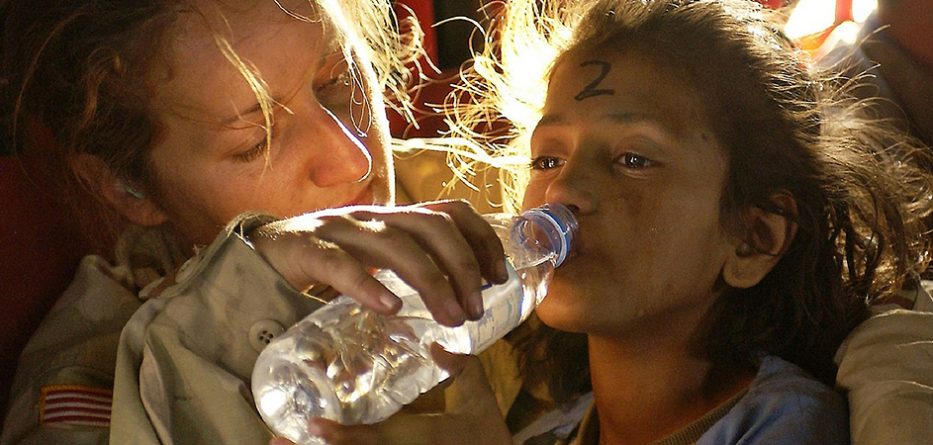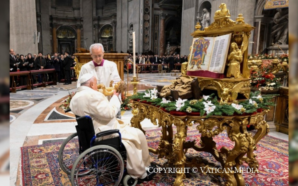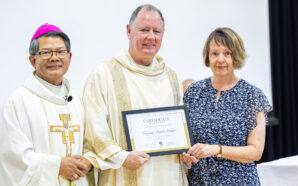August 19 is the United Nation’s World Humanitarian Day
Where there are disasters, disruption and conflict, people will always come to stand with the people affected. World Humanitarian Day honours all work for people in places of poverty and disruption which involves personal risk. Medical teams in areas affected by civil war, community workers in famine struck communities and teachers in places where malaria or coronavirus is rife, are some examples. In this time of coronavirus, the day offers the opportunity also to honour people in developed societies who have steadfastly accompanied people in affected areas. During lockdown, people often saluted the generosity and courage of health-workers which in ordinary times they may not have noticed.
That recognition matters not just for the workers but for society as a whole. When disaster threatens, individual people and communities face a choice. They can withdraw into themselves, focus on their own safety and that of their family, and be hostile to strangers. When they do this they begin to see division everywhere in society and foster it. In the response to the virus, some people have instinctively looked to blame leaders and communities for outbreaks that affected their own interests. It is important for society that people dissociate themselves from this meanness of vision and honour people who in difficult times have shown great energy and responsibility. Among them, we now pay tribute to those who risk their health to provide services central to all of us, such as nursing the sick, transporting food and cleaning hospitals and so on. In doing so we celebrate the things that join us together and the people who keep us together.
People who act in humanitarian ways remind us of our call to contribute to a society that looks to the good of all its members, to attend particularly to the most vulnerable, and to welcome strangers. To walk this path is not easy, and we need encouragement to do so. The example of people who live generously and courageously is important, and especially of people who hang in with communities under difficult circumstances.
World Humanitarian Day is rightly blind to differences of faith, political persuasion or gender in the people it honours. To make distinctions would contradict the spirit and the activities of the people honoured who in their work ignore such boundaries. It would also betray one of the most encouraging features of humanitarian work in precarious places. Typically, in places of crisis Muslims, Christians, Buddhists, Hindus, atheists and people with no firm philosophical or religious convictions come together as companions in situations of crisis, and draw on their own traditions to support them in their commitments.
This year, World Humanitarian Day honours especially the women who have dedicated their lives to others. That emphasis is right both because the contribution made by women is often overlooked, and because many women touch people’s lives at a unique depth. They commit themselves for the long term to communities under threat, and their companionship of families and vulnerable people can be intimate, non-threatening and deeply encouraging.
In many hard-pressed communities, too, the strongest local leadership and the most effective concern for the weakest members of the community are shown by women. This is true also of the communities which we serve at Jesuit Social Services and from which we derive such inspiration. These qualities need to be emphasised, not only to honour the women who display them, but also to encourage a deeper understanding of what humanitarian work entails.
Fr Andrew Hamilton SJ writes for Jesuit Communications and Jesuit Social Services.






